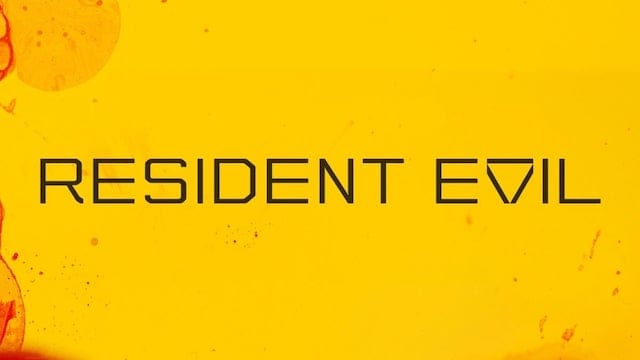TV Series Review: Resident Evil – Season 1 (2022)
Resident Evil… one of the most iconic video game franchises ever created. Popularising the survival horror genre, adapting when needed and proving to be a mainstay of the gaming industry. From its debut in 1996 to the latest entry; Resident Evil: Village in 2021, Resident Evil is a name everyone knows.
Even if you’ve never played a single second of a Resident Evil game, you’ll know of its existence. After all, it’s a media franchise consisting of live-action films, animated films, television series, comic books, novels, audio dramas, and other media and merchandise.
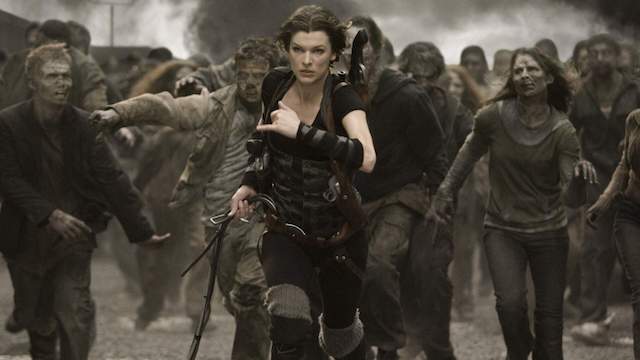
Never played a Resident Evil game? Chances are you might have seen one the many movie adaptions that starred Milla Jovovich. After all, there were six of them and they made a lot of money. Even if fans were split on the quality of them.
While many loved the ‘dumb’ action and over the top nature of the films, the lack of respect for the source material turned off a lot of others. So, when a true to game reboot/adaption was announced and released in 2021, fans rejoiced. For years, we had been begging them to just make film versions of the games and now, we would get it. Called Welcome to Racoon City, it adapted the story from the first two games and it was bad, really bad but it made money and often, that is all that matters.
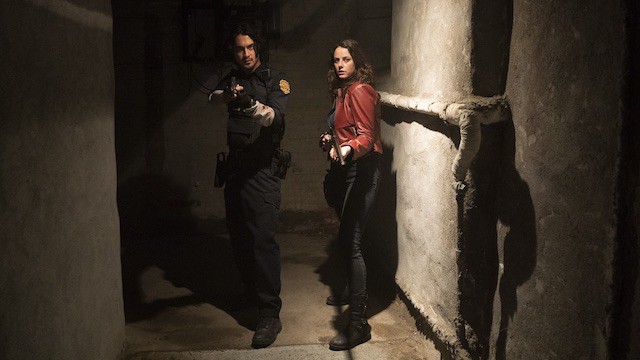
Which brings us to this. A loose TV series adaption developed by Andrew Dabb for Netflix. Utilising elements of the series’ storylines and backstories to create its own universe. One completely unrelated to any other film/TV adaption that came before.
While some fans bemoaned another adaption that ignored so much of what made the franchise so popular, others saw a chance for a fresh take on things. After all, Welcome to Racoon City had gone down the route fans wanted and was monumentally poor. How much worse could it possibly get?
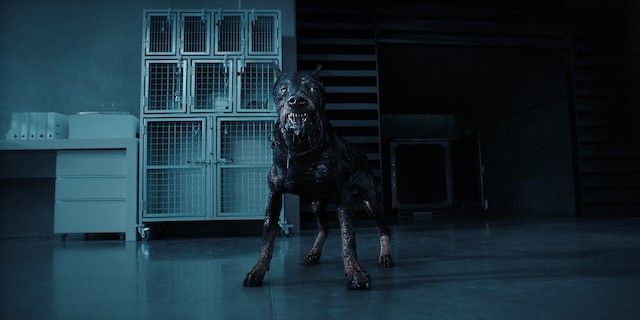
Well, it turns out, a lot worse but also a lot better. Netflix’s Resident Evil is both good and bad. It’s enjoyably entertaining and absurdly aggravating at the same time. It takes the franchise in new and interesting directions, yet feels the need to litter in ham fisted references to the games that often don’t fit. Besieged with plot holes, paced poorly, delivering some laughably bad twists and a lead that is so unlikable, it really should be a terrible show.
However; thanks to excellent acting, good horror moments and impressive visuals, it becomes quite watchable. Hilariously, had this been a sci-fi/horror show with no connection to Resident Evil, it might have faired better. Which really tells you just how far gone the live-adaption side of Resident Evil is.
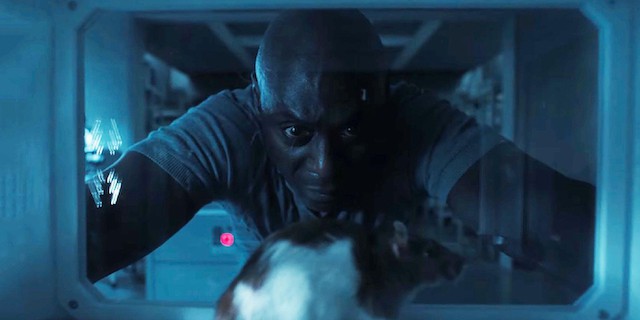
The story takes place across eight hour-long episodes and jumps between two points in time. One, set in 2022 and the other in 2036. The former sees the now struggling Umbrella Corporation attempting to launch a new drug on the market called Joy. One that will help eliminate issues like anxiety and depression. The work on this wonder drug is taking place in the South African community of New Raccoon City. Where Albert Wesker (Lance Reddick) is the executive in charge of getting the drug to the market.
It’s not going so well though and he is worried that rushing the drug to market could cause catastrophic issues on par with Umbrella’s past. Issues that see him clash with head of the Umbrella community, Evelyn Marcus (Paola Núñez).
If all of that wasn’t enough to stress Albert out, he has two 14-year-old daughters, fraternal twins Billie (Siena Agudong) and Jade (Tamara Smart) to look out for too.
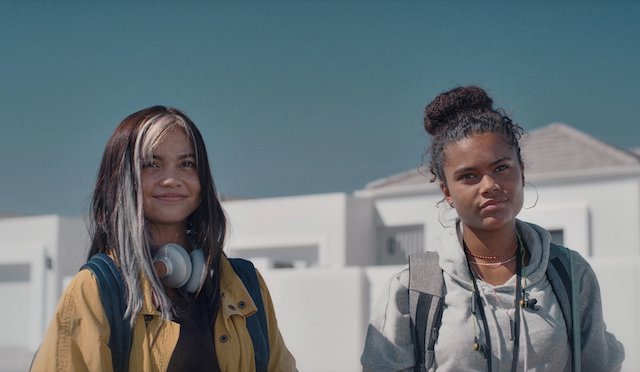
His attempts to hide what he does for Umbrella and his own dark past has meant he struggles to connect with them, in particular, Jade. Who eventually, convinced that he is hiding things, sets in motion the events that we will see in the 2036 parts of the show.
That part of the show sees humanity having been nearly wiped out because of the T-virus. Something that has transformed massive swathes of the population into flesh-eating zombies (Zeroes) and created gargantuan mutants and beasts that roam the landscape. What is left of humanity cowers in walled cities and other small settlements trying to survive.
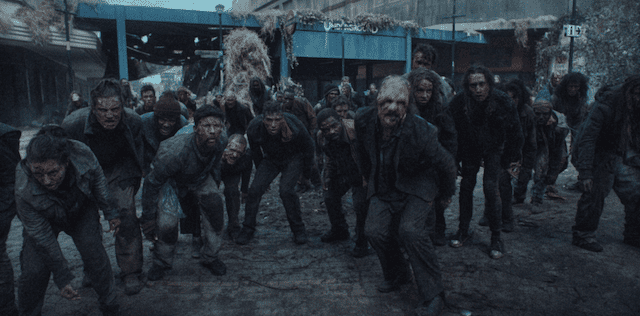
One such survivor is Jade (Ella Balinska). Now trying to prove that Zeroes can work together. Believing that this is key to humanities’ survival, understanding the virus and learning to live with it. Unfortunately, her work is hindered by the fact that the Umbrella Corporation is hunting her. Now the most powerful organisation left on Earth and with a substantial military arsenal.
Why do they want Jade so badly and who is pulling the strings?
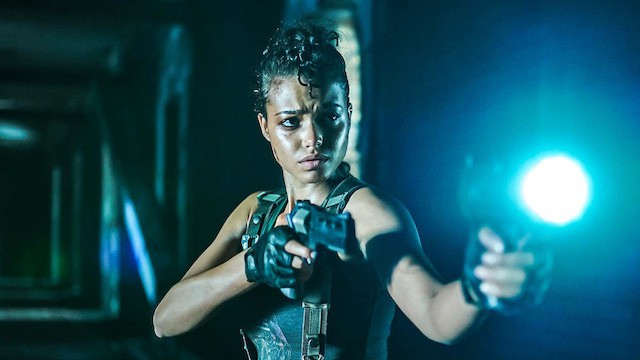
The way in which the show tells both of the stories is done well. Jumping back on forth, developing characters, defining relationships, building the words and slowly showing us how things started and how they came to pass. Quite slowly at times. Yes, the pacing is off and there’s many moments where you just feel like its filler. Mostly in the parts set in 2022.
It’s also this part of the show that has most of, if not all the major flaws. Questionable plot moments. Such as the hilarious lack of security Umbrella has at its lab or the hacker side-character with skills that are just so convenient. Elements that are integral to the show’s ability to move forward but really make you laugh with just how silly they are.
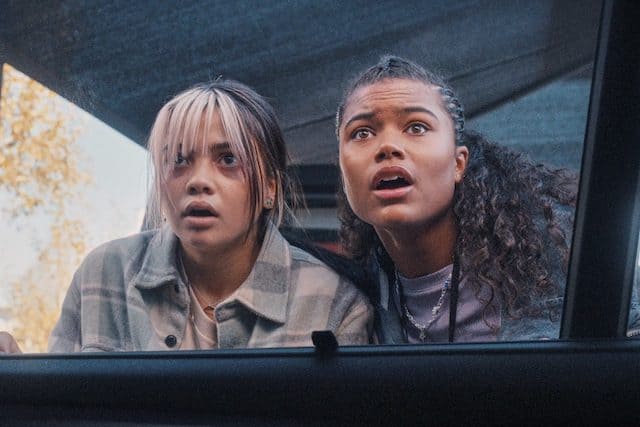
Resident Evil isn’t trying to be silly though. It is a very serious take, highlighted by the focus on sibling drama and teenage issues. This in itself isn’t a problem. The problem is that the main character of Jade is very unlikable and the other, Billie just comes across as weak and stupid. Together, they will have many viewers screaming at the screen. This is no fault of the actors, who are really convincing, it’s just badly written characters.
This grows into a major problem as the show spends more and more time focusing on them. Then you throw in the Jade from 2036, who gets just about everybody killed who tries to help her, and you have a show with leads you just can’t get behind.
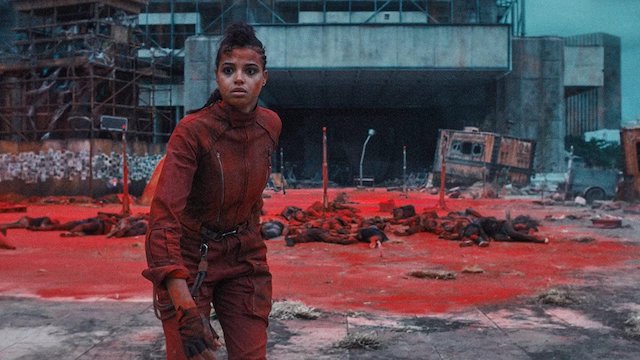
Far more watchable is Lance Reddick as Albert Wesker and Paola Núñez as Evelyn Marcus. Together, they have great chemistry and both give off both threatening and comforting auras. What initially seems like it might be jarring, in particular the Wesker take, ends up being quite captivating. At least until the show becomes obsessed with trying to tie them into the video game lore more and more.
Without giving away any spoilers, both these characters have absurd arcs that move Netflix’s Resident Evil series into campy territory.
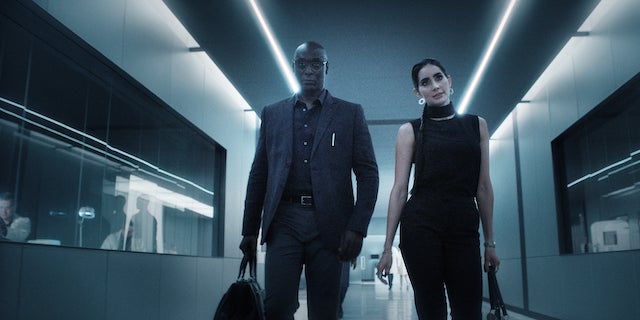
All that being said though, it can be quite a compelling show to watch. You’ll find yourself intrigued to see what comes next. To understand how we get from the 2022 world to the 2036 one and, if you’re a fan of the video games, how it all works together. There’s also money behind this and it shows. A lot of sets are impressive, the effects range from good to great, the action sequences can be quite energetic and it’s not afraid to be horror when it needs to be.
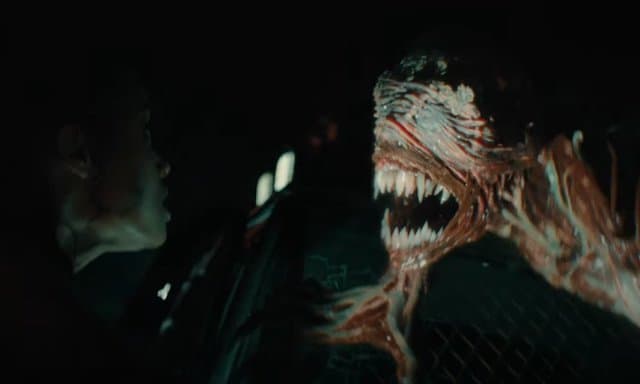
With Netlifx, a season 2 is never guaranteed but hopefully Resident Evil gets one. It certainly expects one with the number of loose threads and unresolved plot points that exist come the end of this season. Does it deserve one? That is well and truly up for debate.
Resident Evil - Season 1 (2022)
-
The Final Score - 6/10
6/10

